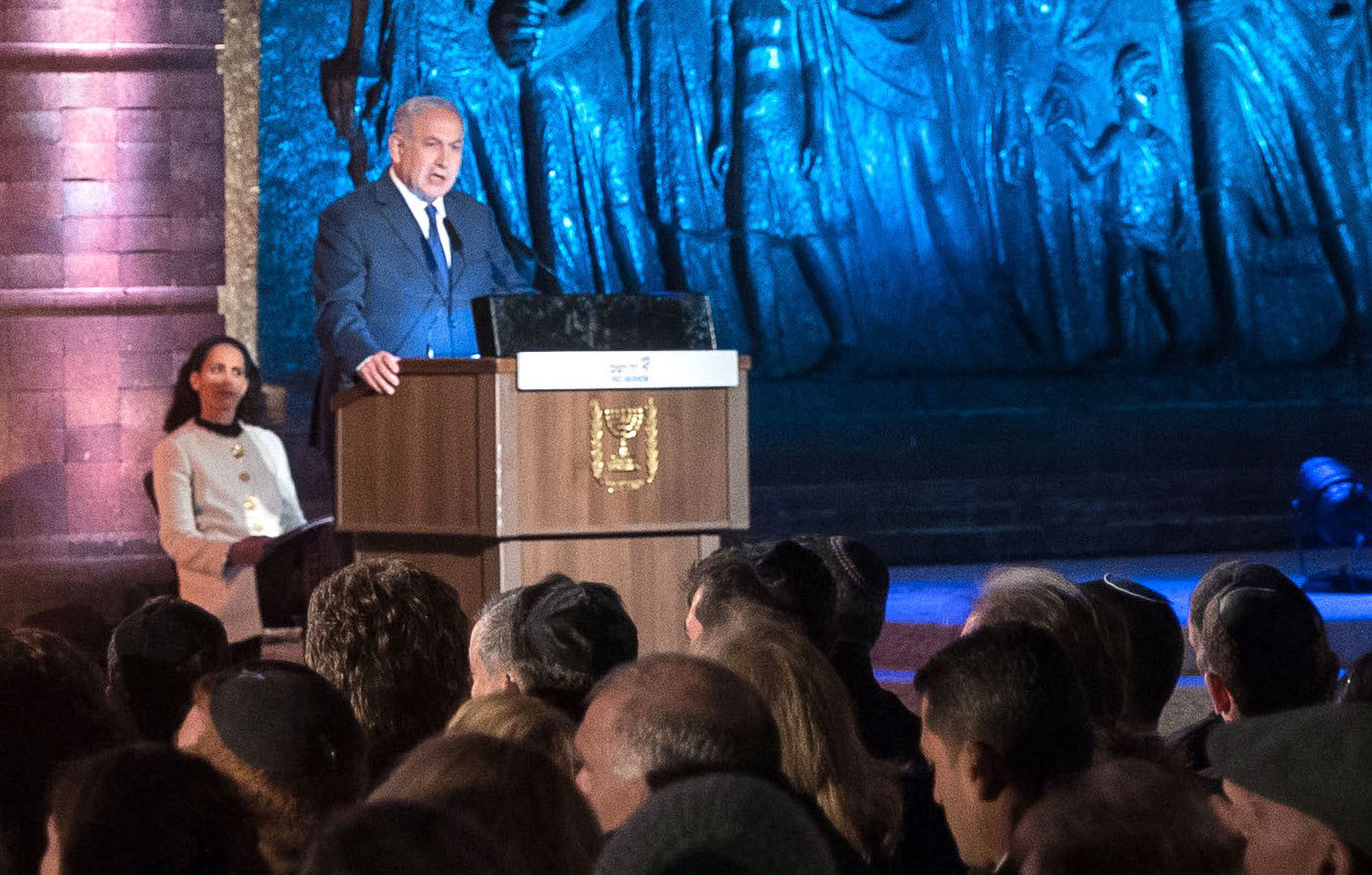How Shoah education distances Jews from Israel
Holocaust Remembrance Day is observed in Israel just a week before Independence Day, and for Israelis, those days are thematically as well as temporally connected: One of many reasons why a Jewish state is needed is to save Jewish lives. Shockingly, the way this connection is taught may have led many young Jews to conclude that the Holocaust is why a Jewish state should not actually exist, or at least why they as Jews shouldn’t care about it.
Two weeks ago, I wouldn’t have believed this. But then I read the column in Haaretz on April 11, the eve of Holocaust Remembrance Day. In it, Steven Davidson described the standardized Holocaust-education curriculum he teaches his sixth-grade Hebrew-school class in Brooklyn. As he noted, he is just “one of hundreds of Jewish educators across Canada and the U.S. to utilize the Holocaust curriculum developed by the nonprofit organization, Facing History & Ourselves.” Since 1976, this curriculum “has educated over half a million students in the U.S. and Canada about the Holocaust.”
So what does it teach Jewish students?
“The lesson,” Davidson explained, “tasked me with writing a quote on the board: ‘I love my daughters more than my nieces, my nieces more than my cousins, my cousins more than my neighbors. But that doesn’t mean that we detest our neighbors’.” He asked his students’ opinion of this sentiment; unsurprisingly, all but one approved it.
And then, “I revealed to the class who said that quote: Jean-Marie Le Pen, Holocaust-denier and renowned xenophobe.” And also renowned anti-Semite, though one can see why Davidson didn’t mention that. After all, the whole point of this lesson is that loving some people more than others is evil—the kind of thing only a Jean-Marie Le Pen would do. Why confuse the message by mentioning Le Pen’s hatred for Jews, in particular, as if that were something Jewish students should care about?
The ensuing discussion drove the point home. One student soon “realized” that this quote is “like America First,” Donald Trump’s slogan, and Trump is a far greater symbol of evil to these students than Le Pen, whom most had never heard of before. As Davidson noted, “My sixth-graders generally hate Trump because nearly all their parents do.” Soon, students were explicitly connecting Trump to the Nazis: “During another lesson, a couple of students related the Brownshirts and Nazi rallies to Trump encouraging and retweeting violence.” The conclusion of this logical progression was clear: Loving some people more than others is Nazi behavior—something no good Jew can countenance.
Of course, any parent who actually cared no more for his own child than for some random child down the block would probably be indicted for child neglect. But the curriculum’s designers know the instinctive parent-child bond is strong enough to overcome such indoctrination; that isn’t their target.
Rather, their target is the bond Jews feel for their fellow Jews. Because that isn’t one of humanity’s deepest instincts; it’s very much a learned behavior.
The canonical Jewish texts taught it by intertwining universal principles with particularist messages about the special obligations owed one’s own people, like “All Israel are responsible for one another” (Talmud Shevuot 39a) or “The poor of your own city take precedence” (Talmud Baba Metzia 71a). Yet even American Jews who never studied these texts used to be taught this behavior. Most Jews of my generation can remember charity boxes at home in which we put money for Israel or Hebrew-school events when we wrote letters to imprisoned Soviet Jews; the unambiguous message was that we had a responsibility to our brethren.
Today, many American Jewish children are taught the exact opposite: that feeling any special responsibility toward their fellow Jews is Nazi-like behavior, and only if they eschew such feelings can they be good Jews who have internalized the Holocaust’s lessons. Given this, is it any wonder that in a 2013 Pew Research poll, 73 percent of American Jews deemed remembering the Holocaust an essential part of being Jewish, but only 43 percent said the same for caring about Israel and just 28 percent for being part of a Jewish community?
This also explains why many young American Jews are “distancing” themselves from Israel. American Jewish leaders from across the political spectrum have increasingly blamed this on Israeli policy.
Yet even if Israeli policy fulfilled American Jews’ wish list in every particular, that still wouldn’t give them any reason to care about Israel one whit more than they do about any other country. Only if they felt a special affection and concern for their fellow Jews—and hence for the Jewish state where almost half of world Jewry lives—would American Jews have reason to feel any special affection and concern for Israel.
Instead, they are taught that special affection and concern for their own people is wrong. And if so, then special affection and concern for the one country on earth belonging to their own people is doubly wrong. In fact, the Jewish state’s very existence is wrong, because states shouldn’t be concerned with the fate of one particular people any more than individuals should.
Thus it’s no surprise that when the National Survey of American Jews asked respondents in 2007 whether they would see Israel’s destruction as a personal tragedy, about 80 percent of Jews aged 65 or older answered yes, but only 50 percent of Jews under 35 did. After all, why should Jews who have been taught that particularism is evil feel bereaved at the loss of the world’s only Jewish state?
And that is the tragic irony of Holocaust education in America today: Young Jews are being taught that the only way to internalize the Holocaust’s lessons is by becoming indifferent to the possibility of a second one. For the destruction of Israel, with its 6.6 million Jews, would assuredly be nothing less.
Evelyn Gordon is a journalist and commentator living in Israel.

 48.0°,
Light Rain Fog/Mist
48.0°,
Light Rain Fog/Mist 




